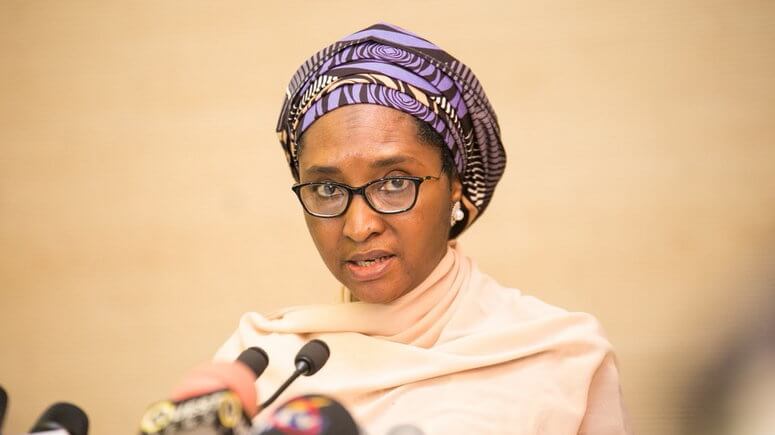The Federal Government on Monday outlines three-point reform agenda it considered critical to achieving sustainable socio-economic growth of the country.
The Minister of Finance, Budget and Planning, Mrs. Zainab Ahmed, who shared her vision about the future of Nigeria during the opening session of the 27th Nigerian Economic Summit in Abuja, said that to realise the future Nigeria of her dream, there was the urgent need to ensure comprehensive and targeted reforms, a reorientation of our national values, and a radical shift in our attitudes to taxation and public financial management.
Describing the three-point agenda as consistent with the focus of the President Buhari-led administration on targeted investment in critical infrastructure and social development, the minister also harped on the roles of the organised private sector (OPS) in attracting investments into critical sectors, particularly infrastructure and education.
Ahmed said the theme of the NES#27 Summit “Securing Our Future”: The Fierce Urgency of Now’ was consciously chosen to reflect the need for urgent and targeted action to address the current national challenges and that the theme built on conversations from last year’s Summit, which emphasized the importance of harnessing critical and strategic partnerships towards economic recovery and resilience.
According to her, while reflecting on the theme of the Summit, she envisioned a Nigeria with a majority of the citizens lifted out of poverty and given access to fundamental services such as education, healthcare, water supply and sanitation, in line with the policy direction of the present administration.
She expatiated: “I envision a future with economic growth led by a thriving and innovative private sector resulting in a diversified economy with non-oil taxes as the major source of government revenue and the non-oil economy driving export expansion and accretion to our foreign reserves.
“ I see a future where our young and vibrant population is driving growth in high value-added services in the digital economy and professional, scientific and technical services.
“I envision a globally competitive Nigeria at the forefront of advances in medium and high-tech manufacturing, characterised by increased product complexity and leveraging on our natural endowments.
“Lastly, I envision a future that is safe and secure, in which Nigerian citizens and foreign investors can trade and conduct business transactions with ease. This future we all crave will be achieved by the dedication and hard work of all stakeholders, with leadership at the federal, state and local government levels and in collaboration with the corporate sector.
“Your Excellencies, as you are aware, the business sector is a key engine of growth that must playa crucial role in achieving the future we envisage. To realize this future, a paradigm shift is incontrovertible. This will entail comprehensive and targeted reforms, a reorientation of our national values, and a radical shift in our attitudes to taxation and public financial management. This is consistent with the focus of this Administration on targeted investment in critical infrastructure and social development”, the minister added.
She noted that government was leading key interventions and reforms to achieve these goals, adding that government has prioritised investment in critical soft and hard infrastructure across the country such as roads, rail, schools and hospitals, delivered through the annual federal budgets.
Ahmed also spoke on the Annual Finance Acts, describing the fiscal step as an important innovation introduced by the current administration that are also key tools for effecting fiscal policy change and incentivising private sector actors.
According to her, government also recognises the need for increased domestic resource mobilisation as evidenced by the implementation of the Strategic Revenue Growth Initiative (SRGI), an important intervention which is already yielding positive results in stimulating non-oil revenue growth.
In addition, she explained that the administration had also concluded work on the Medium-Term National Development Plan for 2021-2025, which sets the development agenda for sustainable growth driven by new and emerging economic sectors.
The minister pointed out that since government cannot drive the required investments on its own, it had consistently acknowledged the need to continue to incentivise private sector participation in the much-needed economic transformation of our country.
To achieve this, Ahmed noted that the required investments and policy changes must be implemented in a sustainable and inclusive manner, ensuring that the needs of the present do not compromise the prosperity of future generations, stressing that in developing interventions, the wellbeing of present and future citizens of Nigeria must be guaranteed.






